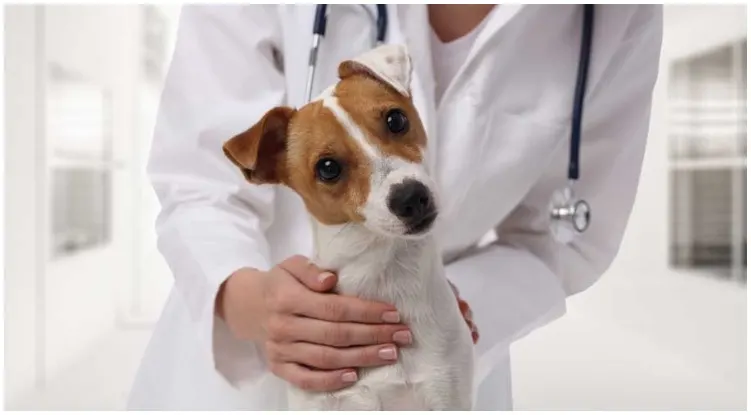If you recently adopted a new puppy into your family your vet may already be urging you for a series of vaccinations. The most common one is a vaccine combination named DHPP.
What does the DHPP vaccine protect against?
The DHPP vaccine is a combination vaccine that provides protection against canine distemper (D), infectious hepatitis/adenovirus (H) and parvovirus (P), as well as parainfluenza (P). Vaccines for distemper, infectious hepatitis and parvovirus fall under the ‘core’ category, which means that every dog should be given these, regardless of lifestyle or location.
D – Distemper
Canine distemper is a highly contagious and potentially fatal viral disease that impacts the respiratory, gastrointestinal, dermatological and neurological systems. It is commonly spread through direct contact with an infected dog, as their respiratory secretions contain high concentrations of the virus.
Symptoms of distemper include discharge from the eyes and nose, coughing, vomiting, diarrhoea, hardened paw pads, fever and seizures. Unfortunately, there is no cure and treatment is largely supportive, with aims to control some of the symptoms and prevent secondary infection.
H – Hepatitis
Infectious canine hepatitis is caused by canine adenovirus which primarily targets the liver and the cells that line the inner surface of blood vessels. It is spread through urine and faeces. Very severe forms of the disease can result in death within hours.
Some symptoms of infectious hepatitis are fever, lethargy, anorexia, vomiting, diarrhoea, enlarged lymph nodes, abdominal pain, bruises and jaundice (yellow discolouration of gums/whites of eyes). Like distemper, this can only be treated with supportive care.
P – Parvovirus
Parvovirus is another highly contagious and potentially fatal viral disease. It is most commonly seen in young dogs under 6 months old. Breeds that seem to be more susceptible include Doberman pinschers, Rottweilers, Labradors and German shepherd dogs. The virus attacks the intestines and bone marrow and is spread through faeces and contaminated objects.
The classic parvo signs are vomiting and foul-smelling bloody diarrhoea. Other symptoms include fever, lethargy and anorexia. Again, treatment involves supportive care.
P – Parainfluenza
While vaccination against canine parainfluenza isn’t considered ‘core’ in the UK, the virus is one of several that contributes to kennel cough, which is a respiratory infection. It can spread rapidly through the air. Boarding kennels and shelters are places where dogs are more at risk.
Some signs of parainfluenza are coughing, sneezing, discharge from the nose and lethargy. Some may recover within 2 to 3 weeks without treatment while others may need supportive care.
When is the DHPP vaccine given?
In puppies, it is recommended that the first DHPP vaccine is given at 8 to 9 weeks of age. The second vaccine can then be given 3 to 4 weeks later.
Some studies have shown that up to 10% of puppies may not respond to these above vaccines due to the persistent presence of their mother’s antibodies (these provide protection during the development of the puppy’s immune system). As a result, the WSAVA advises that a third vaccine be given at 16 weeks or older to complete the primary course. A booster is then given at 12 months or 12 months after the completion of the primary course.
In adult dogs, the DHPP vaccine can be given every 3 years, as it provides protection against distemper, infectious hepatitis and parvovirus for this length of time. That doesn’t mean you should forgo your dog’s annual health check as the ‘core’ leptospirosis vaccine requires yearly administration. An annual booster for the parainfluenza component of the DHPP vaccine is also recommended. It’s worth highlighting that not all core vaccines are given every year.
Are there any side effects?
You might notice your dog is quieter or less inclined to eat as much after receiving the vaccine. The injection site might be sore and have a slight swelling around it. These are common side effects and should only last for a couple of days before your dog is back to their normal self.
While plenty of dogs are vaccinated each year and it is very rare for a dog to have a severe adverse reaction, it is important to be aware of potential risks. Some may have an allergic reaction and develop signs such as facial swelling, itchy skin rashes, fever and seizures. If this occurs, you must take your dog straight to the vet for treatment. These instances are not commonly seen.

